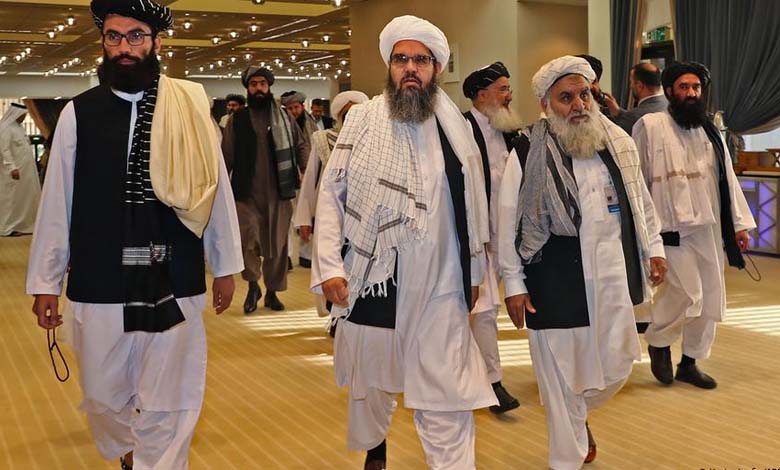Measures in the Autumn of Relations: What the Germany-Taliban Negotiations Have Produced

Two months of “secret negotiations” between Germany and the Taliban have led to the deportation of Afghans from Germany, a first since the movement came to power in Afghanistan.
-
After 3 Years in Power: Taliban Declares “Women’s Faces and Voices Are a Shame”
-
What Afghanistan has reaped after 3 years of Taliban rule
Today, Friday, Germany announced it had carried out its first deportation of Afghan nationals since the Taliban returned to power in August 2021.
Government spokesperson Steffen Hebestreit said in a statement: “These are Afghan citizens, all convicted of crimes, who have no right to stay in Germany and have been issued deportation orders.”
Secret negotiations
A Qatar Airways plane departed from Leipzig Airport shortly before 05:00 GMT, heading to Kabul with 28 Afghans onboard, according to *Der Spiegel* magazine, citing security sources.
-
After 3 Years in Power, Has the Taliban Achieved Diplomatic Success?
-
First ISIS Attack on Foreign Tourists Since the Taliban’s Return
The magazine added that the operation was the result of two months of “secret negotiations” in which Qatar acted as a mediator between Berlin and the Taliban authorities.
Hebestreit stated that Germany “requested support from key regional partners to facilitate the deportations” without providing further details.
Germany had halted deportations to Afghanistan and closed its embassy in Kabul after the Taliban took power in 2021.
-
The Muslim Brotherhood and the Taliban: What are the similarities and parallels between the two organizations?
-
Taliban Foreign Minister Criticizes Iran’s Call for an Inclusive Government in Afghanistan
The Shadow of Solingen
This deportation operation comes as the German government faces increasing calls to limit illegal immigration and take stricter measures against dangerous and convicted asylum seekers, following a series of crimes committed by migrant suspects.
On Thursday, German Interior Minister Nancy Faeser announced that the government would tighten knife-carrying laws and reduce aid for some irregular migrants, in response to the Solingen attack.
-
UN Report Documents Violations by the Taliban
-
Washington-Taliban Talks in Qatar… These Are the Key Points
Three people were killed and eight others wounded during a festival in Solingen (west) last Friday in an attack allegedly carried out by a 26-year-old Syrian connected to ISIS.
The attack has inflamed the immigration debate in Germany and heightened pressure on the government to act ahead of crucial regional elections scheduled for Sunday.
Speaking at a press conference on Thursday, alongside Justice Minister Marco Buschmann, Faeser said the stabbing attack “deeply shocked us.”
-
Efforts to Break the Isolation… Representatives of the Taliban Government Conduct Unofficial Visit to Indonesia
-
Europe has imposed fresh sanctions on the Afghan Taliban movement
She added that the threats highlighted by the attack necessitated a series of “strict measures,” including tightening weapon-carrying regulations and reinforcing security forces.
Regional elections
The immigration debate dominates the run-up to the elections in the states of Saxony and Thuringia on Sunday, where polls show the anti-immigration “Alternative for Germany” (AfD) party in the lead.
The party has accused successive German governments of creating “chaos” by allowing large numbers of migrants into the country.
-
UN Report: Al-Qaeda Allies with Taliban and Rebuilds Training Camps in Afghanistan
-
Taliban Prevent Women’s Education… Crimes that Perpetuate Extremism and Terrorism in Afghanistan
The party of Chancellor Olaf Scholz, the “Social Democratic Party,” and its coalition allies, the “Greens” and the “Free Democratic Party,” are expected to perform poorly.
The conservative “Christian Democratic Union,” Germany’s main opposition party, has called on the government to take stronger measures to curb immigration.
In an attempt to reach a cross-party solution, Scholz announced on Wednesday that he would discuss migration policy with conservatives and representatives of German states.












